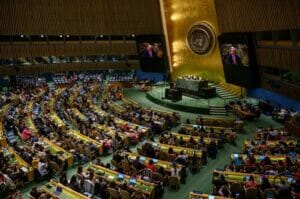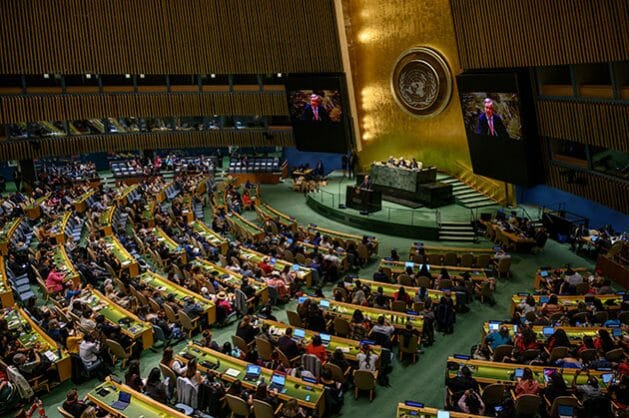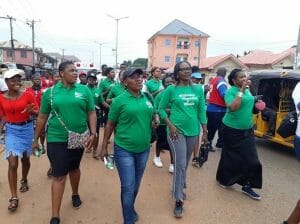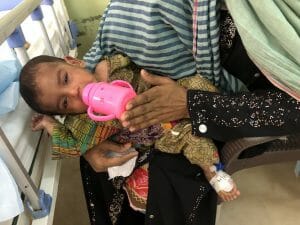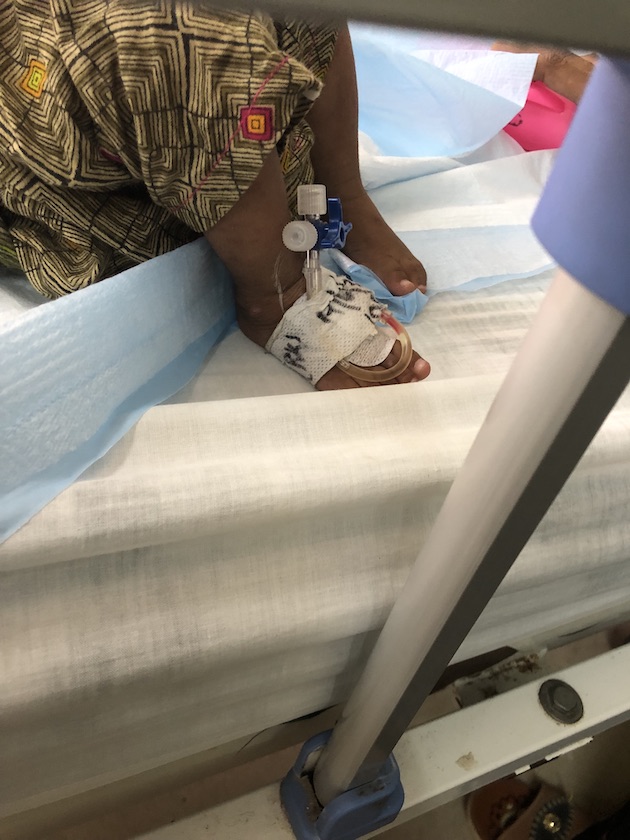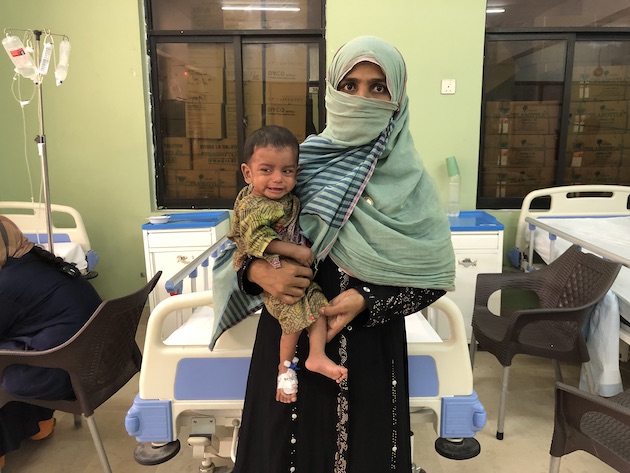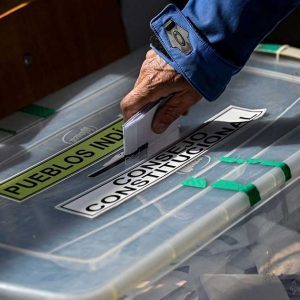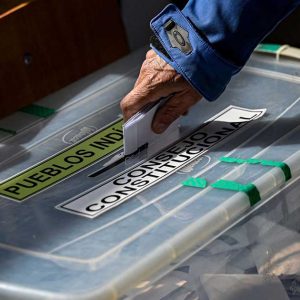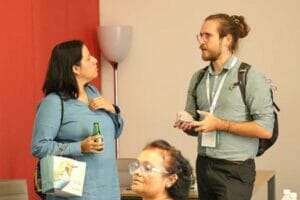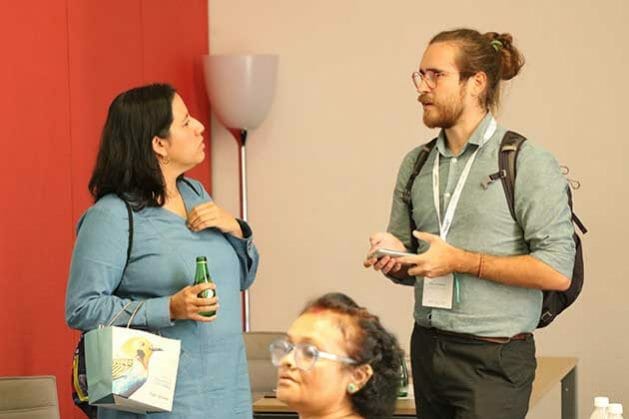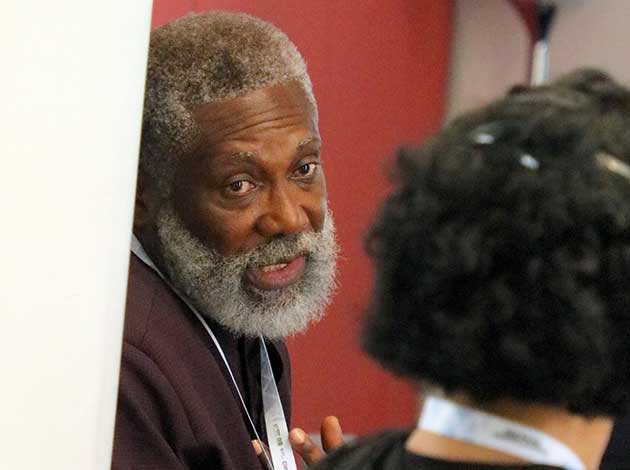
Civil Society, Crime & Justice, Development & Aid, Environment, Global, Headlines, Human Rights, Inequality, Poverty & SDGs, Press Freedom, Sustainable Development Goals, TerraViva United Nations
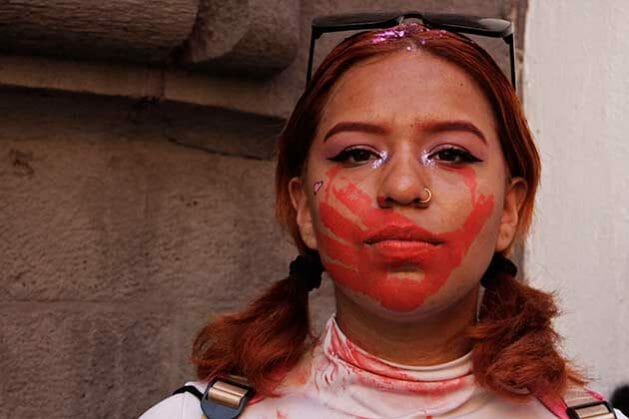
A protest for women’s rights in Puebla, Mexico. Credit: Melania Torres/Forus
– At the UN SDG Summit in New York, the Forus global civil society network is calling for decisive action on SDG implementation. Clearly, as we hit the midpoint towards the “finish line” of the Agenda 2030, progress is stagnating.
The 2023 Special Edition of the SDG Progress Report emphasized that we’re falling short in implementing the SDGs. In April this year, UN Secretary General Antonio Guterres deplored that “Progress on more than 50 per cent of targets of the SDGs is weak and insufficient; on 30 per cent, it has stalled or gone into reverse,” disproportionately impacting the world’s poorest and most vulnerable.
As we approach the halfway mark of the 2030 Agenda, we urge world leaders at the UN General Assembly to address the precarious state of SDG implementation. Here’s our 5 asks.
Walk the talk with clear implementation plans and benchmarks for the realization of the Sustainable Development Goals.
“In Guatemala, there are two worlds, one for a small group that benefits from this macroeconomic stability, this weakness of democracy, this co-optation of state institutions, and a large majority of the population that faces poverty and inequality,” says Alejandro Aguirre Batres, Executive Director of CONGCOOP, the national platform of NGOs in Guatemala that recently published an alternative report on the implementation of the SDGs in the country.
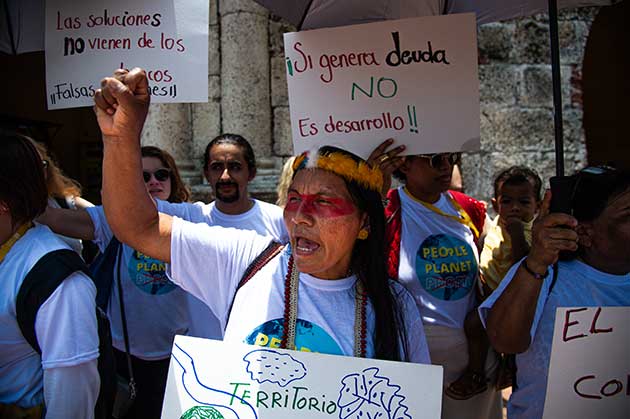
Human rights activists in Cartagena, Colombia from the Coalition of Human Rights in Development at the Finance in Common Summit. Credit: Sebastian Barros/Forus
Governments must make specific national implementation plans to advance the Sustainable Development Goals, with clear benchmarks on when to achieve the targets set in 2015. Following the SDG Summit, we call on the United Nations and its partners to ensure that the “National Commitments to SDG Transformation” called for by the Secretary-General are adequately compiled and tracked, including by providing a transparent and inclusive platform for showcasing these commitments, helping to ensure adequate implementation, follow-up and accountability. All efforts and commitments must focus on breaching the increassing gap in inequalities, healing polarisation and restoring socio-environmental rights at the core of Agenda 2030 implementation as no form of development should come at the cost of environmental degradation and injustice.
Presenting a viewpoint from Asia, Jyotsna Mohan Singh, representing the Asia Development Alliance, emphasizes that while the SDGs look good on paper, their real-world implementation remains far from satisfactory. She explains, “Governments should develop a policy coherence for sustainable development roadmap with timebound targets,” adding that it’s all about creating spaces grounded in equity where civil society and other stakeholders can join discussions and connect with local communities.
In regions like the Sahel, stretching 5,000 kilometers below the Sahara Desert from the Atlantic to the Red Sea, challenges like conflict, political instability, extreme poverty, and food insecurity affect nearly 26 million people. Yet, this region is teeming with opportunities, boasting abundant resources and a young population, including 50% young women and girls. As civil society leader Mavalow Christelle Kalhoule, Forus Chair and President of SPONG, the Burkina Faso NGO network, puts it, “What unfolds in the Sahel and in so many other forgotten communities ripples across the globe, impacting us all even if we choose to look away. Implementing the Sustainable Development Goals is vital to unlock a different future. But for global change to truly happen, we need countries to come together, we need solidarity, horizontal spaces, and for world leaders to start listening and acting accordingly.”
Commit to the protection of civic space and human rights.
“Although the state of Pakistan has ratified many global instruments, including the International Covenant on Civil and Political Rights and the SDGs, the irony is that none of them have been transformed into local policies and regulatory frameworks. Unfortunately, civil rights advocates and organizations have either transformed themselves into humanitarian organizations or practiced self-censorship to avoid state atrocities. Pakistan is failing to achieve SDGs due to disengagement with civil society and other stakeholders. Ironically, the government is unable to provide reliable data on any of their own priority indicators to measure progress towards the implementation of SDGs, particularly on rights-based indicators,” says Zia ur Rehman, National Convener of the Pakistan Development Alliance. Their newly published Pakistan Civic Space Monitor reveals a generally restricted civic space, including restraints on freedom of speech, assembly, information, rule of law, governance, and public participation, with further deterioration. This rings true for 92% of Forus members – comprising national and regional civil society networks in over 124 countries – who consider the protection of civic space and human rights a top priority.
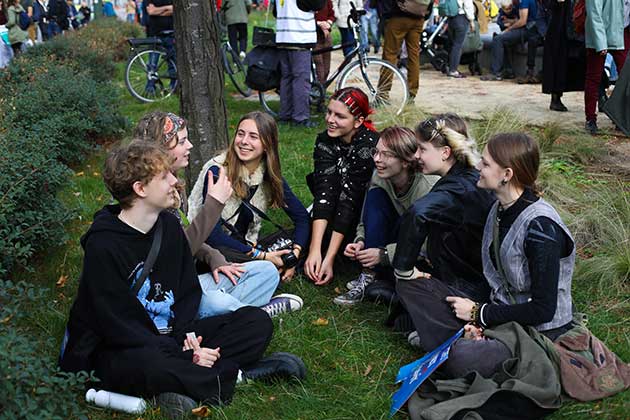
Fridays for Future activists during a Climate March in Brussels, Belgium. Credit: Both Nomads/Forus
Indeed, over the past decade, thousands of civil society organizations have faced increasing challenges due to restrictions on their formation and activities. Nine out of 10 people now live in countries where civil liberties are severely restricted, including freedoms of association, peaceful assembly, and expression, according to the CIVICUS Monitor. Forus reports confirm that civil society deals with increasing restrictions, involving extra-legal actions, misinformation and disinformation about their work both online and offline. Research also highlights the insufficiency of current institutional mechanisms to ensure an enabling environment for civil society, including addressing impunity for attacks on civil society and human right defenders, implementing supportive laws and regulations, and facilitating effective and inclusive policy dialogue. A recent ARTICLE 19 report highlights the inadequate integration of crucial elements like freedom of expression and access to information into SDGs, hampering progress. Journalist killings increased in 2022. Additionally, monitoring access to information mainly focuses on having a legal framework, ignoring its quality and adoption. Strengthening these rights is vital for advancing all SDGs. The growing number of human rights defenders being killed every year – at least 401 in 26 countries were murdered for their peaceful work in 2022 – is another worrying trend that needs to be reversed as the protection and promotion of human rights is the cornerstone of achieving sustainable development. Without human rights we will just move backwards.
Strengthen and Catalyze Robust Financing for the SDGs.
From the recent Summit for a new global financing pact to the Finance in Common initiative, it’s clear that the focus this year has been on increasing investment. But we need quality not just quantity, as expressed in a join civil society declaration aimed at public development banks signed by over 100 civil society organisations from 50+ countries. While we welcome UN Secretary General Antonio Guterres’s call for a SDG Stimulus, we remind Governments, International Financial Institutions, public development banks and donors that more efforts must be done to scale up investments for the realization of the SDGs at all levels, including through additional support for civil society and by involving communities in all “development talks”. The role of the private sector and financial institutions in the implementation of the 2030 Agenda must be talked about openly. It is important to include in all development projects being carried out specific budgets for actions linked to the implementation of the 2030 Agenda. Discussions about financial reforms that are being repeatedly undertaken by several countries cannot happen behind close doors and in non-inclusive forums such as the G7 and G20. Instead, they should be open, inclusive, and transparent, involving a broader spectrum of protagonists, including civil society, to ensure fairness and sustainability in shaping global financial policies.
“The SDGs are severely off track as we reach the critical half-way point of Agenda 2030. We need a renewed global ambition on financial commitments to make progress on the SDGs. Reforms of global financial architecture are a crucial part of this to ensure we have a fairer, more effective, inclusive and transparent system supporting lower-income countries that are at the forefront of the global climate, debt, poverty, food, and humanitarian crises. It’s not about a lack of finance, it is about political will and getting our priorities right,” says Sandra Martinsone, Policy Manager – Sustainable Economic Development at Bond UK.
Mobilize Transformative Commitments for SDG16+.
Recognizing the vital role of SDG16+ as a critical enabler for the entire 2030 Agenda, governments should come to the SDG Summit with targeted, integrated, focused and transformative commitments to accelerate action on SDG16+. As developed in the #SDG16Now collective campaign, this includes domestic policies and resources, legal reforms and initiatives to advance SDG16+ at the international, national and local levels, as well as ambitious global commitments to strengthen multilateralism and international resolve to promote peace, justice, the rule of law, inclusion and institution-building. Additionally, governments must use key moments – such as the 2024 High-Level Political Forum and the Summit of the Future – to advance implementation and delivery of the SDGs through similar commitments to action, and ensure adequate follow-up to these commitments going forward.
Ensure civil society participation and listen to communities, reinvigorate commitments to SDG17.
The 2030 Agenda overall cannot be achieved without building on the role of civil society and fostering a true global partnership. Every year at the fringes of the UN General Assembly, initiatives such as the Global People’s Assembly bring to the ears of world leaders the voices of communities historically marginalised. Governments need to reinvigorate engagement towards SDG17 to trengthen the means of implementing sustainable development goals and revitalising global partnerships for sustainable development. It’s high time we move away from conducting discussions about the future of development in closed-door settings. Tokenistic participation of civil society, where their involvement is merely symbolic or superficial, undermines the core principles of nclusivity, hurting genuine progress and meaningful collaboration. A more inclusive approach must be embraced that actively involves civil society and communities. Let’s #UNmute their voices and perspectives by bringing about reforms to current participation mechanisms, and giving them a real platform to be heard.
In 2015 every government in the world agreed as a global community on what we want for our comon future for people and planet. So many efforts and work went on to reach such an agreement. Now is the time for governments and world leaders to walk the walk and prioritize people and the planet, delivering the 2030 Agenda, essential to secure our shared future. It is time for world leaders to act decisively and uphold their commitments to the SDGs.
IPS UN Bureau

